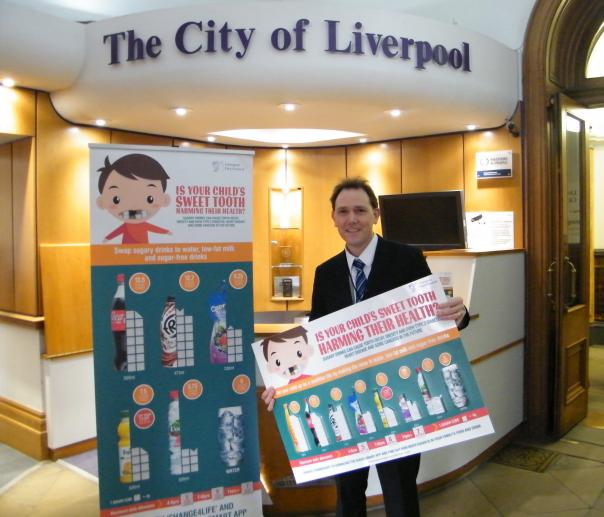Liverpool names and shames fizzy drinks brands

A high profile campaign titled “Is your child’s sweet tooth harming their health?” outlines how many sugar cubes are in drinks such as Lucozade, Coca Cola, Tropicana, Capri-Sun and Ribena.
Councillor Tim Beaumont, Mayoral lead for wellbeing, said: “Through no fault of their own, families simply don’t realise how much sugar is in some of these drinks.
“As well as leading to poor dental health, it is contributing to the obesity issue in Liverpool which means that one in four children starting primary school are overweight, rising to 38 percent for secondary school age pupils.”
Dr Sandra Davies, director of Public Health, said: “We are the first local authority in the country to name how much sugar is in specific brands because we feel it is really important that all parents have the facts they need when making decisions about which drinks to give their children.
“Many of us are not in the habit of studying labels on drinks and the evidence that we have is that people don’t realise how much sugar is in them, so we are taking steps to support them to make healthier choices.
It is estimated the average child consumes more than their body weight in sugar every single year – a total of 5,543 cubes, more than three times the recommended amount.
The campaign highlights that 500ml of Lucozade contains 15.5 cubes (64 grams) of sugar while an equivalent bottle of Coca-Cola has 13.5 cubes (54 grams) – against a maximum daily allowance of five to seven cubes for children depending upon their age.
Beaumont added: “What we’re trying to do through this campaign is get the message across that even drinks which are marketed as healthy such as orange juice and flavoured water have large amounts of sugar in them.
“This is about getting families and young children into healthy habits which will hopefully last a lifetime and prevent future unnecessary pain and trauma.”
